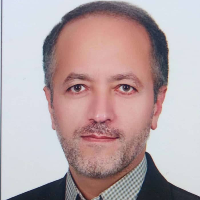Dimensions of Public Compiling Policies with an Approach to Islamic Civilization
Public policies are decisions, taken by the policy-making system, as the stages of policy-making to solve public issues. Relying on public policies, states pursue the goals of national ideals, so they create national governance. For the public sector, public policy defines what activities and actions should be accomplished, or not. Policy-making stages, including problem identification, problem statement for public organizations, policy formulation, policy legalization and legitimation, public policy dissemination and implementation, implemented policy evaluation, and finally, acquiring information from the reflection of implemented operations are related. At the same time, in the policy-making process, each society will face some specific problems; a part of these problems is related to the field of formulation. To formulate public policies, it is vital to consider the previous policies, formulated on the culture and civilization of the country; thus, the requirement for identifying the dimensions of public policies in the field of formulation is significant to realize modern Islamic civilization.
in the present research, we intend to employ the approach of Islamic civilization to outline the dimensions and network of the themes of public policies in the field of formulation and to derive a pattern. Thus, the purpose of this research is to derive the dimensions of public policies in the field of formulation with an approach to Islamic civilization.
considering the research topic, the present research is a qualitative one; the research method is qualitative content analysis with a thematic approach.Content analysis is referred to as a stage of the information process, by which the content of communications is transformed through a set of classified and systematic rules and converted to summarized and comparable data. In the research, data were gathered by an open semi-structured researcher-made interview with experts in the field of policy-making, history, and civilization. In this research, 24 experts, skilled in public policy-making, history, and civilization, were selected by purposive and judgmental sampling, as well as snowball sampling; their views were used as a pattern for public policies in public organizations, in the field of formulation with an approach to Islamic civilization. Initially, most interviews involved experts, with a background in these fields, who had acquired the required knowledge through studying the related texts.
the research findings imply that inclusive and organizing themes, as the dimensions and components of public policies in the field of formulation with an approach to Islamic civilization, include development and construction (pragmatism, specialization, revolutionism, jihadi management, talent identification and elitism, planning and targeting); balance (strategy, discipline and cohesion, idealism, idealization, prospect); cognition (holism, populism, modern technologies, identity, discriminology); evolution (education, freethinking and religious discourse, creativity and innovation, retrospection, productivity, Islamic development, and localization); mission (culturalization, civilization, civilizationalism, collaboration, bond of Iranian thinking with Islamic culture, awareness raising); comprehensive rationality (transparency, accountability, rationality, organizational characteristic, commitment, value-centricity); doctrine (templatability, modelling, people-centricity, ideology, resistance and persistence, up-to-date); fighting against domination system (self-actualization and self-reliance, unity, transformational management); Islamism (Isalm-centricity, compliance with ethical principles, ethics-centricity), and policy (justice, rule of law, security, national governance, foresight, future studies).
the theoretical framework of the research was based on the five steps of modern Islamic civilization and the pattern, provided by the Supreme Leader. Considering the fulfilled first and second steps; that is, the creation of the Islamic Revolution, and the formation of the Islamic system, it is essential that the process of Islamic state formation, in all dimensions and fields, be developed and evolved. In this context, one of the most significant and impressive instances, providing transformational conditions, is to formulate public policies. Hence, given the prospect of modern Islamic civilization, it is essential to outline the dimensions of public policies in the field of formulation and policy-making with an approach to Islamic civilization. The overall conclusions imply that, in the field of legislation and formulation, the derived inclusive dimensions and themes, as a roadmap and policy, can be helpful for public organizations and institutions in the field of implementation and evaluation.
- حق عضویت دریافتی صرف حمایت از نشریات عضو و نگهداری، تکمیل و توسعه مگیران میشود.
- پرداخت حق اشتراک و دانلود مقالات اجازه بازنشر آن در سایر رسانههای چاپی و دیجیتال را به کاربر نمیدهد.




